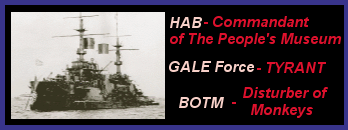There comes a point where the subjective value of liberty and freedom outweigh the objective value of safety. Remember drinking does impair the liberties of others. Drunk drivers routinely eliminate freedoms, like say walking, for their victims. Alcoholic parents routinely piss over their childrens' social development, education, and general opportunities - ultimately leading to less liberty due to alcohol.From a straight healthcare cost perspective, I guess the choice is obvious ... but your 'effective prohibition' is still basically just a massive intrusion into the personal choices of citizens in the name of making everyone 'safer' statistically. Is that such an 'obvious' choice? We'd all be 'safer' locked in padded rooms, fed a nutritious broth through a soft rubber spigot in the wall ... but you've paid a pretty hefty price in liberty for that version of safety, and although the price you're paying in this idealized prohibition is significantly lower, it is still a sacrifice of personal liberty that I hope isn't all *that* easy to choose away.
In short even one looks strictly at the freedom gained or lost by prohibiting alcohol, there are still ludicrious numbers of individuals who would gain freedom from its banning.
In the end it is a tradeoff, at some point the harm likely to be avoided is not worth the cost likely to be incurred. Outside of the extrema the balance between harm and cost is not as obvious, in the case of magic wand alcohol prohibition it is glaringly obvious.
Anything is considered for banning, the ethics of it come down to the expected harm avoided balanced against the expected cost. The cost of banning alcohol via magic wand is quite low, the harm avoided is staggeringly high - it makes most wars look trivial in comparison. When the tradeoff is this obvious it is a no brainer.So anything made purely for recreation can be considered for banning if it's harmful when abused?
When the expected harm avoided is much lower then things are less obvious and the balance often lies against banning.



